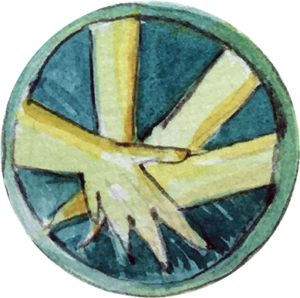We, Judith Pete, Juliana Raffaghelli, and Caroline Kuhn are contributing to the book ‘HE for Good’ which will offer ideas about the role of education in addressing “wicked” problems which need multiple solutions, resolutions, experiments, and imaginaries. As in wider work towards social and climate justice, the book aims to answer the question: “What can be done”? This question for us concerns issues of data justice.
For that, we created a forum with a set of questions that we are interested in knowing your answer to. If the forum is not accessible to you, here is a form that might be easier to access.
It has been debated which skills and knowledge we need to live well with data, and although research shows that this is a complex problem, it has failed to provide us with the big picture. It seems important to understand how data travels from the user who generates them to the systems that profit from them. But there is a more nuanced situation that has been overlooked and we argue it needs attention, namely, what happens when despite data being available (e.g. natural disasters, health, geopolitical conflicts) for collection, it is not collected? The no-data situation! The politics of invisibility as it is called. What are the social and cultural consequences of being invisible to the world?
We need more than only technical skills to address this situation because this is not a purely technical problem but a social justice issue, thus a political problem. Therefore, we need critical data capabilities (skills, knowledge, and the social conditions for its take-up) to look into the social and cultural impact of being missed from the data sets that are available for governments and policymakers
Given the above, we are starting to envision a pedagogical proposal that we hope will enable us to bridge rural learning environments with urban learning environments so that issues of access to data can be addressed, tackling a bigger issue of social and data justice. We want our contribution to the book to be inspired by your lived experienced regarding how you access and generate relevant data in your rural setting.
We have been working with Dr Judith Pete at Tangaza University to develop open educational resources to support educators and students in strengthening their critical data literacies.
If you are curious to know more about these resources, click here and you’ll find them. You also can explore the modules that are available through the menu on the site.
 Thank you!
Thank you!